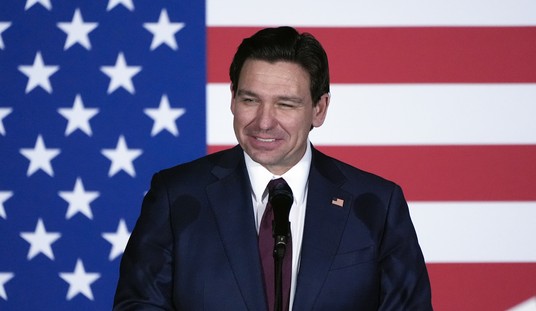Following the failure in Copenhagen and Cancun, no one expected much from the UN’s seventeenth year of climate talks that took place during the past two weeks in South Africa. However, the sluggish conference got a jolt of excitement when China teased that they might agree, after sixteen years of disagreement, to sign a legally binding deal for reducing emissions.
China’s softening position escalated enthusiasm at the United Nations Climate Change Conference of the Parties (COP17) with news coming out stating that negotiators “were steps closer to an agreement on combating climate change” and “Agreement on emissions reduction appears near.”
COP17, according to The Economist, was “more about saving the circus” than “saving the planet.” Regarding the event, the Wall Street Journal declared that it “appeared destined to end as a well-advertised convention of environmental officials and activists swapping strategies on creating new national parks and shuttering old coal-fired plants.” But that was before China’s changing rhetoric—and rhetoric it was.
China’s shift came with a “laundry list” of pre-conditions that meant they never really had to change their position, while appearing to be promoting environmental policies.
Since 2007, China has been the world’s largest emitter of greenhouse gases. Because of their status as a “developing country,” they have avoided participating in legally binding emission cuts such as the Kyoto protocol. Their main concern is the ability to grow their economy—believing that it would be unfair to limit their emissions “while rapid development is lifting millions out of poverty.”
After years of appearing more concerned about being exempted from the rules than about global warming itself, why would China suddenly change its tune? Have they had a true change of heart, or just a change of strategy?
Recommended
Christiana Figueres, the UN’s senior climate official, said, “Clearly, they seem committed to dealing with the issues and making a contribution.”
Yes, they do want to make a contribution, but the contribution is to their rapidly growing economy.
Despite the Wall Street Journal’s comment about COP17 being “well-advertised,” few even knew it was happening. Those who did expected little. Even Ban Ki-moon, the UN secretary general, tamped down expectation by saying that “grave economic troubles” may make a new climate treaty, “beyond our reach.” Even the EU, “doubts China’s credibility” and “will not agree to a new phase of the Kyoto pact unless the conference agrees on a road map to a broader global deal.”
From the public’s perspective, global warming is of little concern.
A public who doesn’t care about global warming and a lack of a global pact to cut CO2 emissions is death to the solar panel industry, as it is “deeply driven by government policies”—and who is the leading manufacturer of solar panels? None other than China!
As news of solar failures like Solyndra and Evergreen have become late-night television fodder, and the high cost of the solar-generated electricity and excessive land use/habitat destruction, have become widely known, China fears losing its market—leaving them stuck with all those solar panels. It, suddenly, after sixteen years of disagreement, becomes in China’s best interest to make a “contribution” to the global climate change debate.
China needs the climate change debate to rage on. The market for solar panels depends on the fear, uncertainty, and doubt generated by the advance of the theory that global warming is caused by humans burning fossil fuels.
Most people, even the few who are concerned about climate change, have no idea that solar panels require rare earths and that China produces 97% of the world’s rare earths—though America has them in abundance.
Since 2007, China’s exports of rare earths have declined 54%. They have clamped down on illegal mining—which reduced production, increased internal consumption, and increased tariffs on sales to other countries. Economics 101: less supply equals increased price. China’s control of rare earths allows them control of the solar-panel—not to mention wind-power—manufacturing market. American producers can access the needed rare earths without tariffs if they move the manufacturing plants to China—thus creating jobs in China.
China needs the fear, uncertainty, and doubt to fester. It sells solar panels. It makes electricity more expensive for its competitors (particularly the US)—electricity that is essential to manufacturing. More jobs go to China. American is less competitive, China is elevated.
Meanwhile, back at the ranch, instead of building on our strengths, the EPA is trying to regulate America’s abundant energy sources out of existence. The State Department delays a steady energy supply from a friendly source. The BLM and Forest Service are doing all they can to block natural resource extraction, and the Fish and Wildlife Service is allowing supposed endangered species to thwart or deny domestic energy development. The DOE is pouring taxpayer dollars into renewable energy.
America is suffering “grave economic troubles.” By supporting the man-made climate change theory, we are supporting China—diminishing America, elevating China—instead of building on our strengths.
The Department of Defense knows a rare earths shortage creates a security crisis, as they are used in all computers and guided missile systems, jet engines, radars and stealth technologies —not just an energy emergency (in addition to use in renewables, lanthanum is used in oil refining and gadolinium can be used as an artificial frac sand). America has rare earths in California, Wyoming, New Mexico, Nebraska, and several other states. California’s Mountain Pass mine is coming back on line. Access to the fourth largest rare earths supply, Wyoming, is in the permitting process. If we could accelerate and streamline the permitting process, America could dominate the market and help tip the trade balance.
The tax-payer subsidies for renewable energy (section 1603) are due to expire at the end of this month—subsidies that ultimately help China’s economy and raise our energy prices. Public pressure on Congress can end these subsidies and help our “grave economic troubles.”
The Kyoto protocol, “the world’s only binding agreement to curb emissions has been a colossal failure.” Canada, whose economy has recovered, says, “Kyoto is the past.” Developing nations, such as China and India, have refused to sign on due to the economic necessity of affordable energy (hint: economies grow with abundant, affordable and available energy). Yet, China “continues to insist that industrialised countries must sign up”—as long as China doesn’t have to pay.
When it comes to climate change, China has not had a change of heart. They have had a change of strategy. It’s about “saving the circus.”

























Join the conversation as a VIP Member